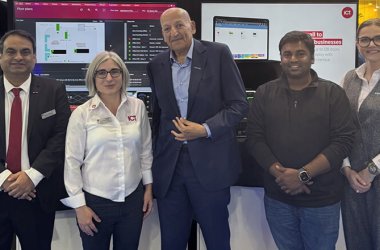
Ingram Micro’s profits were dragged down for the second quarter in a row due to problems with an SAP implementation in Australia, the technology distributor said.
Net income in the second quarter ended July 2 was US$59.7 million, down from $67.7 million in the same period last year. The drop “is primarily related to business disruptions associated with transitioning to the new [SAP] system in Australia,” but the issues have now been largely resolved, Ingram Micro said.
“Ingram Micro has been rolling out SAP in various regions for some time. A number of conversions in Europe went quite smoothly,” CEO Gregory Spierkel said. “But the company is going to delay implementing SAP in Brazil in order to accommodate continued focus on the country’s operational improvement program currently under way,” he said.
“Overall, Ingram Micro will receive long-term benefits from the SAP project that exceed any challenges it faced during the implementation,” Spierkel said. “We will have a unified global system that will be the backbone for the company for decades,” he added.
An SAP spokesman largely echoed the sentiment.”Businesses around the world recognise the value and strategic importance of a consistent core operating platform from SAP,” company spokesman James Dever said. “The market updates we see are snapshots in time on projects that are central to our customers’ strategic ambitions and will pay off in long-term growth and efficiency.”
Coincidentally, the status of an SAP project was a major focus of another company’s earnings report on Thursday, but with a wholly positive slant.
Airgas, a large distributor of industrial, medical, and specialty gases and associated equipment, has been rolling out SAP in phases for some time.
“We’re excited about its game-changing implications,” Airgas CEO Peter McCausland said. “Our hard-goods infrastructure business, including Airgas safety and our national buying centers and distribution centers, have been running successfully on SAP since going live in July 2010, a year ago. Our first regional distribution company, Airgas South, successfully went live on SAP on April 4. All major processes have been functioning well, and there has been no system downtime.”
Airgas’ Great Lakes subsidiary is set to go live on SAP in September.
By the end of 2013, Airgas’ SAP project should generate at least US$75 million in additional operating income, according to McCausland.
In addition, Airgas’ project benefited from strong planning. Some 300 subject-matter experts from the company were dispatched to work alongside systems integrators, Airgas officials said last year. That move apparently helped ensure a smooth transition to the new system.





